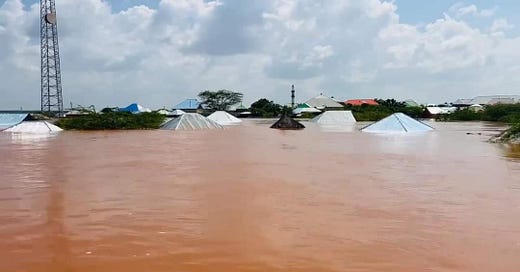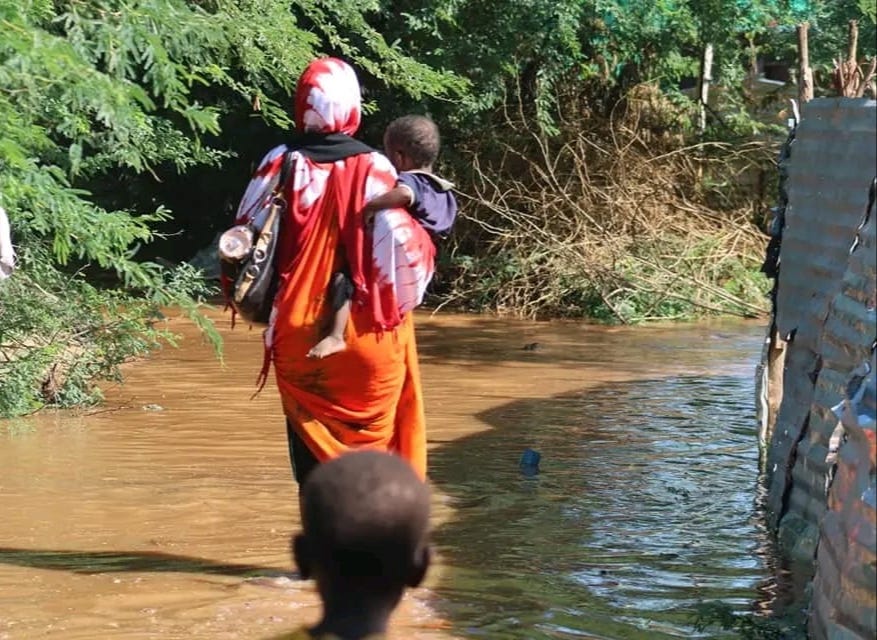Loss and damage are not hypothetical
In just over a year, Somalia has been hit by two extreme and opposite weather events, with drought and then flooding devastating lives.
This year’s climate negotiations started with a big announcement – a new fund to pay out countries being destroyed by a heating world was ready to go, after decades of negotiation. The fund is intended to support communities who did the least to create the climate crisis, but are paying the highest price.
A few thousands kilometres away from the air-conditioned rooms of Expo City Dubai, millions of people in Somalia are already living with the bitter reality of climate change. In Dolow, in the southwest, camps created when people fled here to escape a drought of historic proportions are now strewn with torn tents and debris – the makeshift homes washed away by raging floods.
“We are forced to sleep outside,” Halima Nur told The Continent in November. She came to the camp from Baidoa, more than 200km away. Baidoa was suffering its worst drought in nearly 40 years. “I lost everything I had because of the drought. I lost a child along the way. I came to this camp in February empty-handed.” Another of her children is now sick, after weeks of sleeping in the open. As are hundreds of others in the Dolow camps. “The rain is a good thing but it can also cause damage,” she said. “It washed away our tents. It’s very cold at night.”
Adan Ali in Bardhere, 260km south of Dolow, faced the same extremes. “I think we needed the rain,” he said. “We were recovering from a very bad drought.” But the local river burst its banks, destroying homes and the bridge that connects them with other communities nearby. Ali said: “We can’t go back to our houses. We are stranded. We lost everything, even lives.”
Somalia’s government estimates that the floods displaced 1.1-million people and killed more than a hundred. Last year’s drought displaced hundreds of thousands, with an estimated 43,000 killed.
For the dead, the loss and damage fund came too late. For the survivors, support depends on the ability of negotiators to ensure polluters actually do pay for destroying communities like Dolow.





